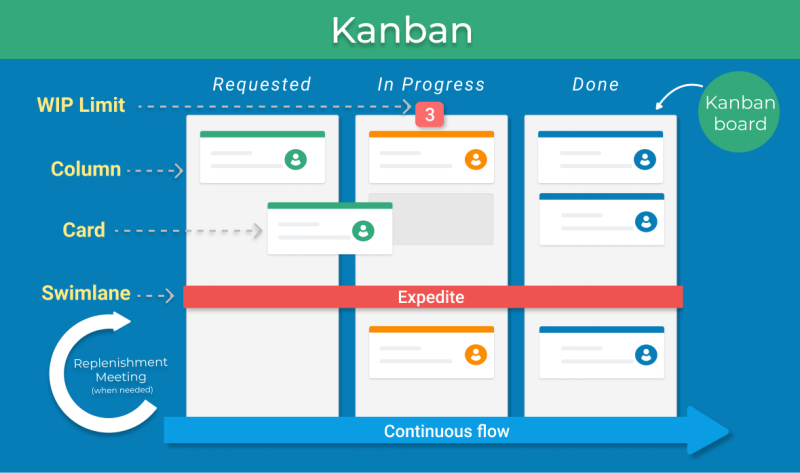In project management, the discovery phase (also called the requirements phase) is often overlooked or done prematurely.
Sometimes, it’s because of the project team’s eagerness to get started, and the notion that their information is enough. Other times, it’s because clients don’t want to invest in a step that doesn’t seem to add concrete developments to the final deliverable.
But here’s the thing: the discovery phase is far from being a cause of delay. Done right, your discovery phase can be immensely beneficial in organizing your workflow, maintaining your relationship with clients and stakeholders, sustaining team morale, and maximizing your project’s impact on the big picture. Let’s take a detailed look into the discovery phase and what it can do for you and your team.
Read more: 5 Phases of Project Management (PMP)
What Is the Discovery Phase?
The discovery phase is where you work closely with clients to gather information on their business, goals, hurdles, resources, and current situation. Industry research, user research, competitor research, and a thorough assessment of relevant business processes and prior works by the organization are usually involved in this process. Data-gathering can mean going through company archives, combing through documentation and groundwork, or interviewing relevant personnel.
The discovery phase is also when you align on project requirements — the things your project needs to accomplish.
- Business requirements: What should the final project output get to do for the business?
- Functional requirements: What function(s) should the final project output get to perform?
- Non-functional requirements: What is the level of performance required of the final project output?
In the discovery phase, these requirements aren’t just clarified. They’re also inspected, scrutinized, and evaluated based on information the team gathered. Doing this can help detect essential considerations that can affect your workflow and success. And as you deepen your understanding of the business, you’ll become more equipped to ensure your clients can get the most from what they pay for.
Why Is the Discovery Phase Important?
If you’re working with a client struggling to see the importance of a discovery phase, here are eight benefits you can share to help convince them otherwise.
Improve Solutions
Diving into your client’s goals, vision, and priorities can help you understand what they want to accomplish as an organization. With their end goal in mind, you can recommend better solutions based on your past work or new findings from your research.
Maximize Existing Resources
Looking into your client’s past works and initiatives might lead you to discover resources you can use to improve your workflow. This can eliminate redundant work and, in turn, reduce cost and effort for everyone involved.
Align Expectations
Doing research will give you and your clients a realistic understanding of the situation at hand. This aligns all parties on what the project can and cannot achieve, making way for fair and realistic expectations before the project begins.
Anticipate Issues
The discovery phase is an excellent time to invite subject matter experts and relevant personnel to shed more light on the issues at hand. This can help you and your team foresee possible bottlenecks and ensure the feasibility of your project requirements.
Read more: How to Avoid Blockers on a Project
Optimize Workflow and Execution
A good grasp of your client’s industry, your project’s underlying drivers, and limitations help you spot opportunities and prepare for hurdles. When crafting your workflow, consider your findings and keep an eye out for them as you execute. This can help you ensure that everything runs as smoothly as possible.
Estimate Accurately
Thoroughly looking into the prerequisites you’ll need to produce your project deliverables and fulfill project requirements will allow you to inject them into your estimates. Your insight on possible hurdles and bottlenecks will help you add ample padding and contingencies, allowing your team to handle them without excessive timeline delays.
Reduce Cost
Adding a discovery phase may seem like an additional expense. But with thorough research and alignment, you and your client can have a better chance of avoiding major changes at the advanced stages of production. Overhauls tend to cost more as the project progresses, so it’s always good to address them as early as possible. And with a discovery phase, it’s possible to avoid them altogether.
Increase Confidence for All Parties
While some level of ambiguity is an inevitable part of any project, taking steps to lessen it is still a good way to increase confidence for your team and stakeholders. Securing ample information will allow your team to make decisions based on evidence instead of hunches. Project risks will be more regulated, too, helping everyone feel more at ease as things progress.
Read more: Proof of Concept in Project Management
Doing the Discovery Phase the Right Way
When clients want to cut costs or expedite progress, they tend to shorten or remove the discovery phase from the process. But as you know now, this is not wise.
Allocating time for research can help you and your team develop the best solutions and make data-driven decisions. With a discovery phase, you’re coming into a project well-informed and ready for whatever comes your way.
Done right, a discovery phase can increase your probability of success and maximize the impact of your project on your client’s business. This way, your clients can get the most from what they pay for, and your team can be more confident in achieving project objectives.
Featured Partners: Project Management Software
If you’re interested in learning more about top rated project management software, the editors at Project-Management.com actively recommend the following:












